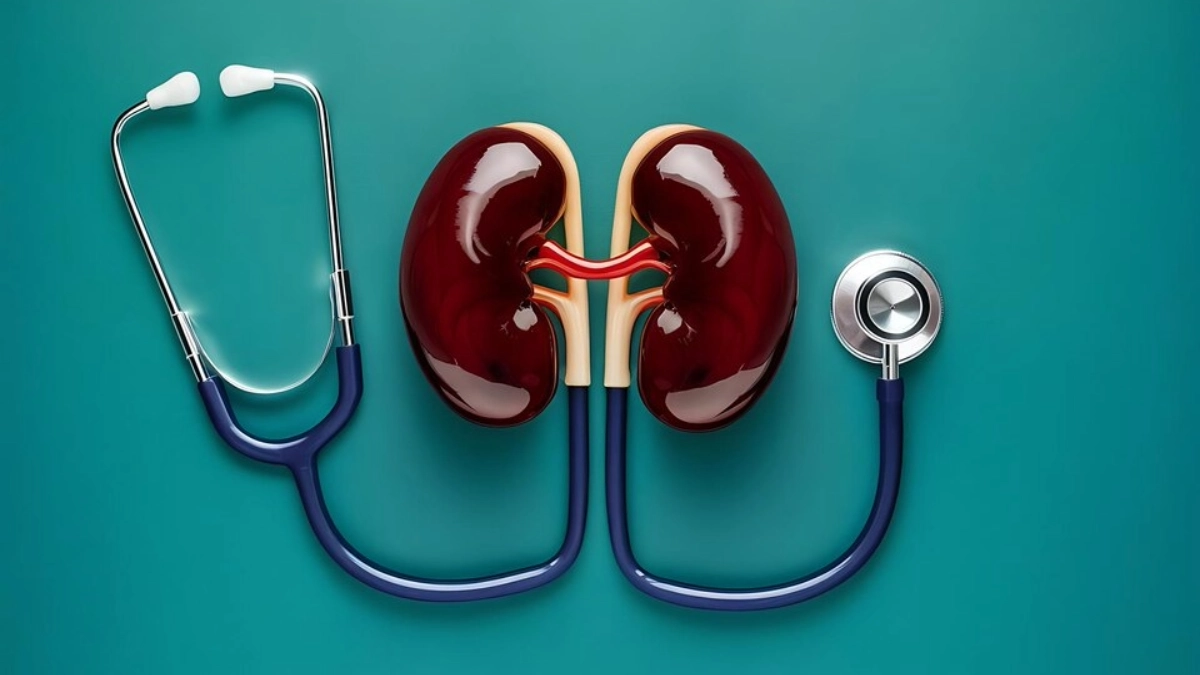Kidney stones treatment in Turkey has become a sought-after medical service due to the country’s advanced healthcare infrastructure, experienced urologists, and affordable treatment options. Kidney stones are hard deposits of minerals and salts that form in the kidneys and can cause severe pain, urinary obstruction, and infections if left untreated. With state-of-the-art diagnostic tools and cutting-edge surgical procedures, Turkey offers a comprehensive approach to managing and eliminating kidney stones with minimal discomfort and high success rates.
Understanding Kidney Stones
Kidney stones are hard deposits of minerals and salts that form in the kidneys. They can cause severe pain and complications if left untreated. In Turkey, cutting-edge medical facilities and experienced specialists provide world-class treatments for kidney stones, ensuring effective relief and prevention strategies for patients.
Diagnosis of Kidney Stones in Turkey
Accurate diagnosis is the foundation of effective treatment. In Turkey, state-of-the-art diagnostic methods ensure precise detection and analysis of kidney stones.
Diagnostic Tests
- Blood Testing: Evaluates calcium, uric acid, and other mineral levels to determine stone formation risk.
- Urine Testing: A 24-hour urine collection test assesses mineral content and the presence of substances that inhibit stone formation.
- Imaging Tests: High-resolution CT scans, ultrasounds, and X-rays help identify kidney stones, their location, and size.
- Stone Analysis: When a stone is passed, laboratory analysis helps determine its composition and underlying causes.
What Does Kidney Stone Pain Feel Like?
Known medically as renal colic, kidney stone pain is typically severe and intermittent. It is felt on the affected side of the lower back and may radiate toward the abdomen and groin. The intensity often depends on the stone’s size and location. If a stone moves into the ureter (the tube connecting the kidney and bladder), the pain can become excruciating.
Common Symptoms of Kidney Stones:
- Sudden and severe side or back pain
- Nausea and vomiting
- Painful urination with burning sensation
- Frequent urge to urinate
- Blood in the urine (hematuria)
- Dark or cloudy urine
Non-Surgical Kidney Stones Treatment in Turkey
Many kidney stones are small and can be treated with conservative management.
Medications and Lifestyle Adjustments
- Pain Management: NSAIDs help relieve pain during stone passage.
- Hydration Therapy: Drinking at least 2.5-3 litres of water daily facilitates stone passage.
- Alpha-Blockers: Medications like tamsulosin help relax the ureter, aiding the passage of stones.
- Dietary Changes: Reducing sodium, oxalates, and purine-rich foods minimizes stone formation risk.
Advanced Kidney Stone Treatments in Turkey
For larger kidney stones or cases where conservative management fails, Turkey offers several advanced medical procedures.
1. Extracorporeal Shock Wave Lithotripsy (ESWL)
A non-invasive technique that uses shock waves to break kidney stones into smaller pieces for easier passage.
- Advantages: No incisions, outpatient procedure.
- Ideal for: Stones smaller than 2 cm.
- Recovery Time: Minimal; patients resume daily activities within 1-2 days.
2. Ureteroscopy (URS) and Laser Lithotripsy
A minimally invasive approach where a thin ureteroscope is inserted through the urethra to remove or break up stones using laser energy.
- Advantages: High success rate, low risk.
- Ideal for: Ureteral and kidney stones resistant to ESWL.
- Recovery Time: 2-3 days.
3. Percutaneous Nephrolithotomy (PCNL)
A keyhole surgery is used for larger stones (over 2 cm), where a nephroscope is inserted through a small incision in the back to extract or break the stone.
- Advantages: Highly effective for large stones.
- Ideal for: Complex or multiple kidney stones.
- Recovery Time: 5-7 days.
4. Laparoscopic and Robotic-Assisted Stone Surgery
For cases where less invasive methods are ineffective, laparoscopic or robotic surgery provides a precise and safe solution.
- Advantages: Reduced recovery time, minimal complications.
- Ideal for: Complex kidney stones.
Recovery and Post-treatment Care
- Hospital Stay: ESWL and URS require minimal hospitalization, whereas PCNL may require a short stay.
- Pain Management: Post-procedural discomfort is typically managed with prescribed medications.
- Lifestyle Changes: Increased hydration, reduced sodium intake, and dietary modifications help prevent recurrence.
- Follow-Up: Regular check-ups and imaging ensure effective stone clearance.
When is Surgery Necessary for Kidney Stones?
Surgical intervention is recommended when:
- Stones are too large to pass naturally (>1 cm)
- Severe pain persists despite medication
- Kidney function is compromised
- Persistent infections occur due to stone obstruction
Minimally Invasive Kidney Stone Removal Methods
1. Ureteroscopy (Laser Stone Removal)
- A thin tube (ureteroscope) is inserted through the urinary tract to locate and fragment the stone with a laser.
- No incisions required, recovery is quick (1-2 days).
2. Retrograde Intrarenal Surgery (RIRS)
- Ideal for stones located inside the kidney.
- Uses a flexible ureteroscope and laser technology.
- High success rate with minimal complications.
3. Percutaneous Nephrolithotomy (PCNL)
- Recommended for large stones (>2 cm) or those resistant to ESWL.
- A small incision in the back allows direct kidney access to break and remove stones.
- Hospital stay: 1-3 days, recovery: 5-7 days.
4. Laparoscopic Kidney Stone Surgery
- Used for large or complex stones.
- Small abdominal incisions with minimal blood loss and quicker recovery.
- Effective when other methods fail.
Why Choose Turkey for Kidney Stones Treatment?
- World-Class Hospitals: Equipped with cutting-edge technology and internationally accredited.
- Expert Specialists: Renowned urologists and nephrologists specializing in stone management.
- Affordable Costs: Competitive pricing compared to Western countries, without compromising quality.
- Medical Tourism Packages: Inclusive of accommodation, transport, and post-treatment support.
Estimated Kidney Stones Treatment Cost in Turkey
The cost varies based on the procedure, hospital, and complexity of the case.
- ESWL: $1,500 – $2,500
- URS and Laser Lithotripsy: $2,000 – $3,500
- PCNL: $3,500 – $5,000
- Laparoscopic Surgery: $4,000 – $6,000
Prevention of Kidney Stones
- Drink at least 2.5 litres of water daily.
- Reduce sodium and oxalate-rich foods.
- Maintain a balanced diet with adequate calcium.
- Monitor uric acid levels and maintain a healthy weight.
Conclusion
Turkey is a premier destination for kidney stones treatment, offering advanced medical care, highly skilled specialists, and cost-effective solutions. With state-of-the-art diagnostic tools, minimally invasive treatments, and comprehensive post-care support, patients can expect excellent outcomes and a smooth recovery process. Whether opting for non-surgical management or advanced surgical techniques, Turkey ensures world-class healthcare at a fraction of the cost compared to other countries.
The best treatment depends on the stone size and location, but laser lithotripsy (RIRS) and extracorporeal shock wave lithotripsy (ESWL) are commonly preferred.
Drinking plenty of water, taking prescribed medications, and using medical treatments like ESWL can help break down small stones faster.
For small stones, ESWL or medications can help. For larger stones, laser lithotripsy, percutaneous nephrolithotomy (PCNL), or laparoscopic surgery are the most effective options.







